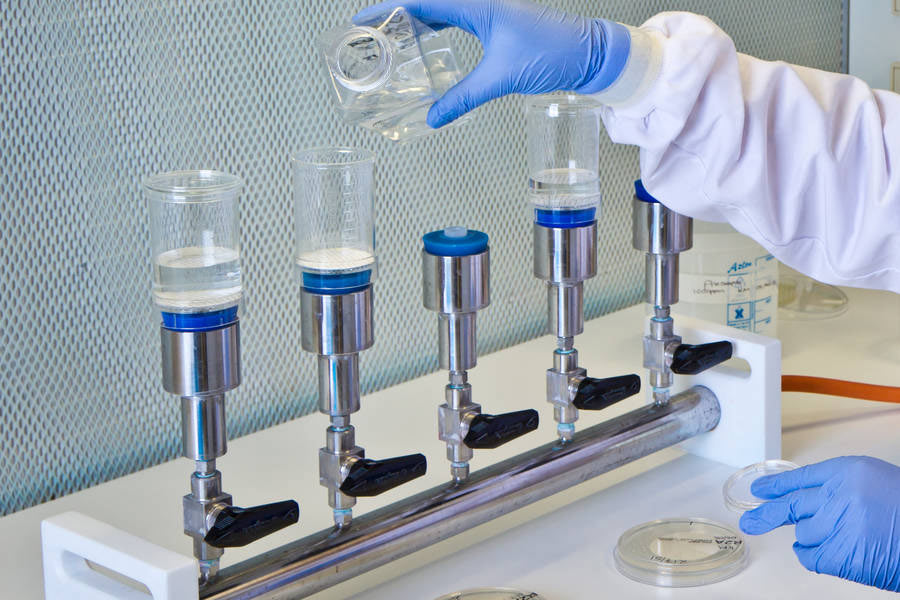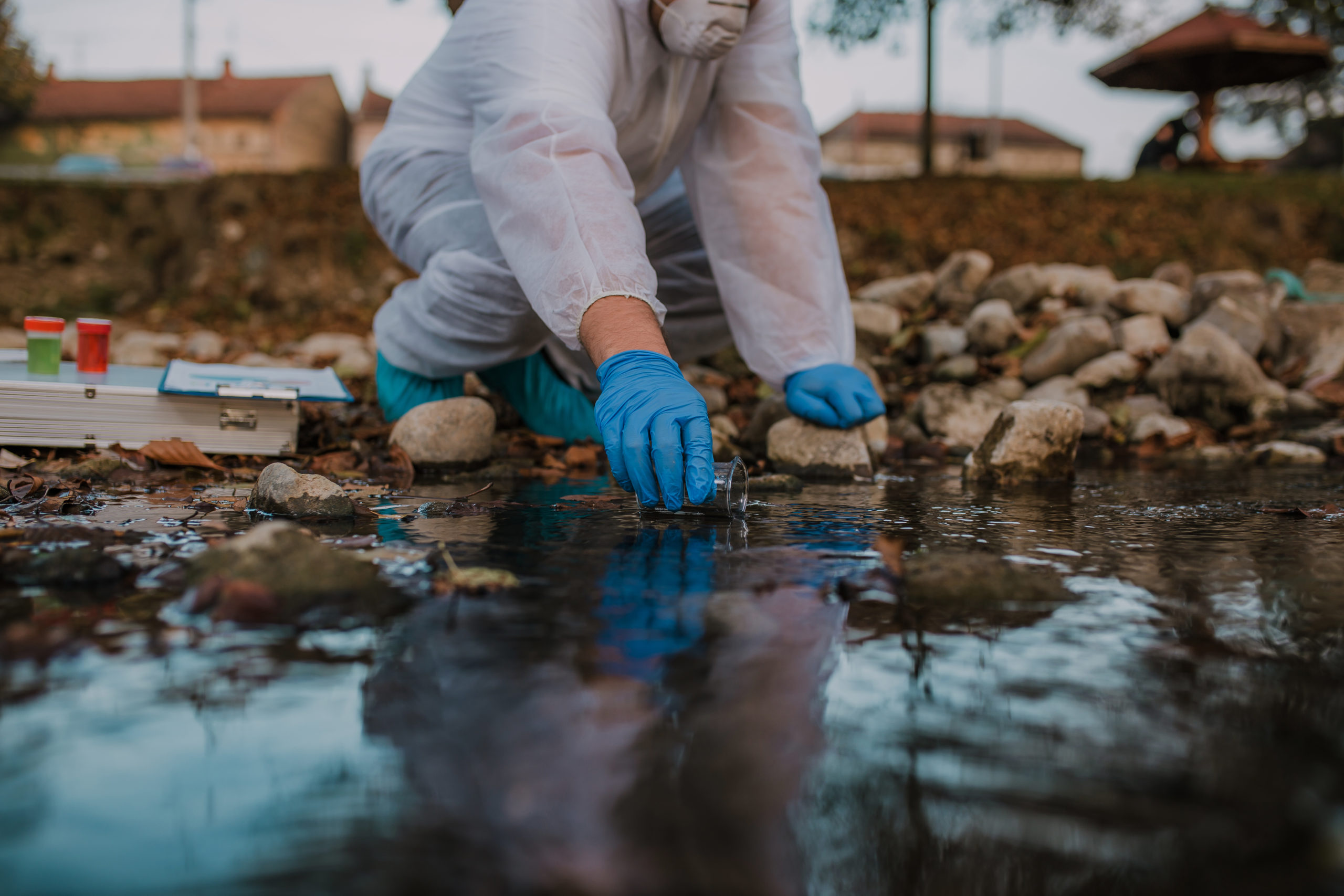Learn Exactly How Water Testing Can Find Contaminants and Shield Your Family members's Wellness
Recognizing the relevance of water screening is important for safeguarding your family's health and wellness, as our water supply can nurture hidden dangers. By discovering the technicians of water screening, one can uncover the unseen risks hiding in seemingly immaculate water resources.
Value of Water Evaluating
Identifying the critical function water plays in sustaining life, the significance of water screening can not be overstated. Water is a fundamental source, crucial for drinking, cooking, cleanliness, and numerous industrial procedures. Its high quality straight impacts public health and wellness. Guaranteeing that water is free from hazardous materials is crucial for keeping healthy areas and ecosystems.
Water testing functions as a positive step to determine possible dangers that may jeopardize water top quality. With methodical evaluation, it helps detect physical, chemical, and organic criteria that could position threats to human wellness. Regular screening enables the very early detection of concerns, assisting in timely interventions to stop widespread contamination and linked wellness issues.
Furthermore, water testing supports regulatory compliance, ensuring that water carriers meet well-known safety requirements and guidelines set by governmental authorities. It fosters transparency and responsibility, building public rely on the water supply system. In addition, screening gives useful information that educates water administration approaches, allowing sustainable use and conservation of this priceless source.
Basically, water screening is an important tool that safeguards public wellness, ensures governing adherence, and promotes the sustainable management of water resources. Its importance in protecting both individuals and areas can not be underestimated.
Typical Water Impurities
Among the different aspects that can endanger water quality, common water impurities consist of a range of physical, chemical, and biological substances that position considerable dangers to human health and wellness and the setting. Physical impurities typically entail sediments or natural products suspended in water, which can impact clearness and preference.
Organic contaminants, largely microorganisms, infections, and protozoa, arise from human and animal waste entering water systems. Microorganisms such as E. coli, Giardia, and Cryptosporidium are notorious for creating intestinal diseases and can be especially hazardous to children, the senior, and those with jeopardized immune systems. Nitrates and nitrites, commonly coming from plant foods, pose one more wellness threat, specifically to infants, potentially leading to conditions like methemoglobinemia or "blue infant syndrome."
Additionally, emerging impurities, including drugs and individual care items, have increased problems due to their determination and unknown long-term results. Understanding these pollutants is important for implementing efficient water therapy techniques and guaranteeing secure drinking water.
Exactly How Water Testing Works
Comprehending the range of contaminants in water underscores the value of effective screening techniques to guard public health. Water screening is an organized procedure developed to determine and quantify different contaminations that could position risks to human health and wellness.
When examples are accumulated, they go through lab analysis utilizing different strategies. Chemical screening typically includes spectrometry or chromatography, both of which can recognize and gauge specific chemical compounds. For microbiological testing, techniques such as membrane layer filtering or enzyme substrate examinations are made use of to identify pathogenic microbes. Additionally, physical attributes like turbidity, ph, and color are assessed to give understanding right into the total quality of the water.
The specific methods utilized in water testing depend upon the specific impurities of issue and the water's meant usage. By regularly using these extensive testing procedures, scientists and public wellness authorities can ensure the safety and high quality of water, therefore protecting communities from possible health and wellness threats.
Picking the Right Test
The initial step is evaluating the water resource-- be it community, well, or surface water-- as each has distinctive threats. Community water could need screening for disinfectant by-products, while well water might websites need testing for nitrates, bacteria, and hefty steels.
Next, think about current occasions and ecological variables. Nearby agricultural activities might require testing for pesticides and herbicides, whereas industrial zones could require checks for chemical pollutants. Furthermore, any kind of modifications in water smell, preference, or appearance ought to trigger details screening for common contaminants like lead, chlorine, or biological pathogens.
Expert water screening solutions supply detailed sets that target a wide variety of possible pollutants. These packages usually straighten with criteria set by the Environmental Protection Company (EPA) or regional wellness departments. For a more customized strategy, consulting with a water quality professional can provide insights right into which certain tests are required based upon local worries and private health demands, making sure the security of your family's wellness.

Maintaining Water Safety

In enhancement to screening, correct maintenance of water supply plays a crucial role. This includes checking and servicing pipes systems, tank, and septic systems to stop leaks or backflow that could introduce contaminants - Water Testing Service. Using water filtering systems made to attend to details regional concerns can better guard versus pollutants, offering an extra layer of security
Public understanding and education are just as vital in keeping water safety and security. Areas should be educated concerning prospective dangers related to regional water resources and the necessary steps to mitigate them. Urging public involvement in water safety and security efforts cultivates a cumulative duty that enhances overall performance.
Eventually, a detailed method that integrates regular testing, system maintenance, and area have a peek at these guys involvement is essential in safeguarding water quality. By doing so, families can be assured of tidy and secure water, safeguarding their wellness and wellness.

Conclusion
Regular water screening is essential for recognizing pollutants such as microorganisms, hefty metals, and chemicals that present health risks. By analyzing water samples, undetected risks can be identified, guaranteeing the stipulation of risk-free drinking water. This see post positive approach aids develop a healthier atmosphere and promotes informed decision-making pertaining to water safety and security. Selecting appropriate screening techniques and maintaining watchfulness in water top quality are essential steps in guarding public wellness and making certain the well-being of all household participants.
Understanding the significance of water screening is important for securing your household's health and wellness, as our water supply can nurture hidden threats.Water testing serves as a proactive procedure to determine potential threats that may endanger water top quality.Additionally, water testing supports regulatory conformity, making sure that water providers satisfy well established security requirements and standards established by governmental authorities. Local water might require screening for disinfectant by-products, while well water might need testing for nitrates, microorganisms, and heavy metals.
Regular water testing is an essential component in keeping the top quality of water sources, enabling timely interventions prior to contaminants get to unsafe degrees.